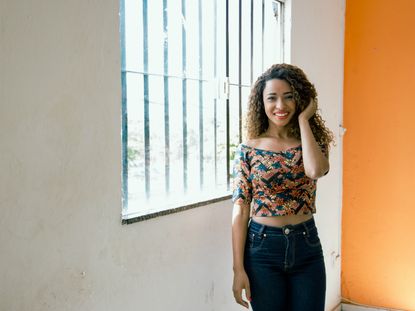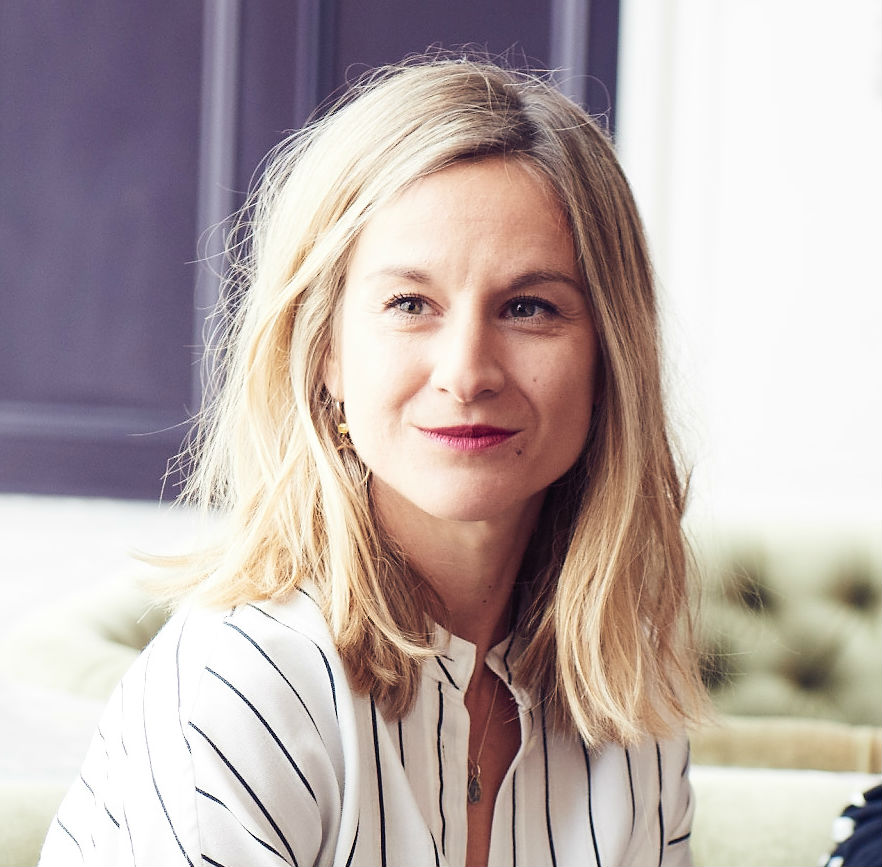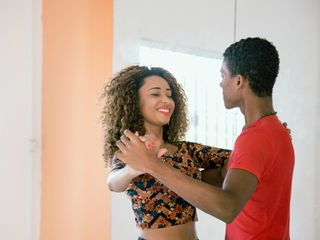‘I was raped by my stepfather’ - Life after the Olympics for Brazil’s most vulnerable women
When 30-year-old Girlene from Sao Luis found herself abandoned on the streets, it was her dream to become a dancer that saved her life. She speaks exclusively to Marie Claire


When 30-year-old Girlene from Sao Luis found herself abandoned on the streets, it was her dream to become a dancer that saved her life. She speaks exclusively to Marie Claire
As the Olympic flame went out and the last fireworks of Rio’s carnival-like closing ceremony fizzled away, the reality sets back in for the thousands of women and girls who regularly experience brutal violence in Brazil, often in their own homes. In a country where over 500,000 people are raped every year – but only 10 per cent of cases are reported – survivor Girlene tells us how she found hope and why she wants to end the suffering for another generation of girls.
‘My mother was abused by my father. I was so little I didn’t notice. Soon after he physically abused my mother, my sister and me. My sister’s nose was broken and my collarbone was fractured. My mother eventually left him – I was about 10.
That’s when I started working as a maid in a house, but the abuse continued. I was only allowed to go home once a month. I would leave the money I was paid with my mother (about US$15 a month) and return to the house where I worked, and was fed very little and forced to sleep on the floor. After six months, my sister and I were totally exhausted and couldn’t take it anymore, so we returned to my mother’s house.
By that time, my mother was living with another man. The first days were amazing, he treated us well and we went back to school. Then he started to get upset when we were there. We weren’t allowed to turn on the lights to study and when we arrived home after school, he’d throw away all of the food in the house so we went hungry. My mother was supportive of him and when our neighbours saw what was happening, they fed us.
I had enrolled on a dance course at school – I always loved to dance. One day when I arrived home after class I went to take a shower. The shower was outside and there was no door – just a shower curtain. As I was showering, my stepfather barged in and put his hands on my mouth and pushed me against the wall before forcing himself on me. I was 13. When he left, he pushed me and I lay on the floor trying to understand what had happened. I was in a lot of pain and there was blood. To this day, I have flashes of that moment even though I’ve tried to erase it from my memory.
My stepfather told me my mother wouldn’t believe me. He was right. When I tried to tell her the following day, she wouldn’t let me finish the story. She interrupted saying it was all in my mind.
Marie Claire Newsletter
Celebrity news, beauty, fashion advice, and fascinating features, delivered straight to your inbox!
I spent some more months living there, but he kept harassing me and continued to touch me inappropriately. If I was in the kitchen he would grab my hair, my bottom or touch my breasts... I was afraid to stay at home with him. If my mother was away, the harassment was always worse.
My mother’s relationship with him was deteriorating. At one point, she tried to send him away but the next day she went and brought him back home. They had a really bad argument and when I got home from school she said she didn’t want us there anymore. She said she was happy with him and she didn’t want to leave him at any cost. Then, she opened the front door and asked us to leave.
My sister went to live with her boyfriend. I spent two days sleeping on the streets. I wanted to stay with my eldest sister, but it didn’t work out. My older sister is white. My middle sister and I are black and they didn’t want me there.
That was when I met two social educators who would go on to become so important in turning my life around. One of them invited me to live with her and her family. I stayed for a few years and I totally lost contact with my whole family until I was 16.

I started to grow in confidence. I was participating in many workshops, including those run by Plan International Brazil. I learnt about sexual exploitation, my rights and youth advocacy. I used to be very shy, but they encouraged me to find my voice. In fact, after I took part in a communication project, I finally found the strength to tell one of the social educators what happened to me when I was 13.
I also found hope through dancing. Dancing is everything to me. One of my favourite dances is Samba de Gafieira because it is happy and uplifting. Dancing has helped me fight this big monster that’s been at my side. When I danced, I grew bigger and stronger than the monster.
I get emotional talking about the dance because nowadays I don’t feel pain anymore. In my first dancing contest I came first even though I had no experience, just passion. I didn’t want anybody to feel sorry for me, I mean, I don’t feel sorry for myself. Dancing has set me free from the demons that so often kept me awake at night. Dancing, from Samba to Waltz, makes me feel like I was an ugly duck who became a beautiful swan. There is no money that can buy this feeling.
Sexual violence is a serious issue in Brazil, due to a lack of public policies, and it stems from a lot of other issues. In my case, my mother suffered too. She wasn’t sexually abused, but she suffered violence. She had to work to provide for us. When she saw she could be safe with a man, she didn’t want to lose the security he brought home because of us. If these issues are tackled through awareness sessions - such as those run by Plan International Brazil - girls could have a different future. Over time, I’ve learnt to forgive my mother and we have a good relationship now.
For me, I wish I hadn’t held my secret for so long. I felt like I was the one to blame. Now I’ve realised I’m not guilty. The survivor is never guilty. How can you be guilty for a sick person thinking that they can rob you your childhood?
Today I am 30-years-old. I have graduated, I have my own dance studio that I co-own with my husband and I am an educator. I’ve achieved everything I wanted because I spoke out and those who believed in me made me realise I can make a difference.
A big part of my life has been pain, but today I’ve set myself free. When I see my past, I put my present in front of all that and I see the things I achieved from the moment I spoke up.
To all the girls and women who have suffered like I have, please, speak up. Don’t let anyone get away with it. Talk to someone you trust, who believes in you, someone that you know who can make a difference. Let’s show society we don’t have to stay quiet.’
For more information about Plan International UK’s work in Brazil, visit www.plan-uk.org/brazil
-
 We're fitness experts who've spent 100's of hours testing fit kit - these are the lululemon products we rave about to family and friend
We're fitness experts who've spent 100's of hours testing fit kit - these are the lululemon products we rave about to family and friendKeen to invest in kit that'll last the long run?
By Chloe Gray
-
 Taylor Swift has broken her silence on the meaning of new track ‘Clara Bow’
Taylor Swift has broken her silence on the meaning of new track ‘Clara Bow’By Jenny Proudfoot
-
 George, Charlotte and Louis are learning "new home rules" to help Princess Kate's recovery
George, Charlotte and Louis are learning "new home rules" to help Princess Kate's recoveryBy Jenny Proudfoot